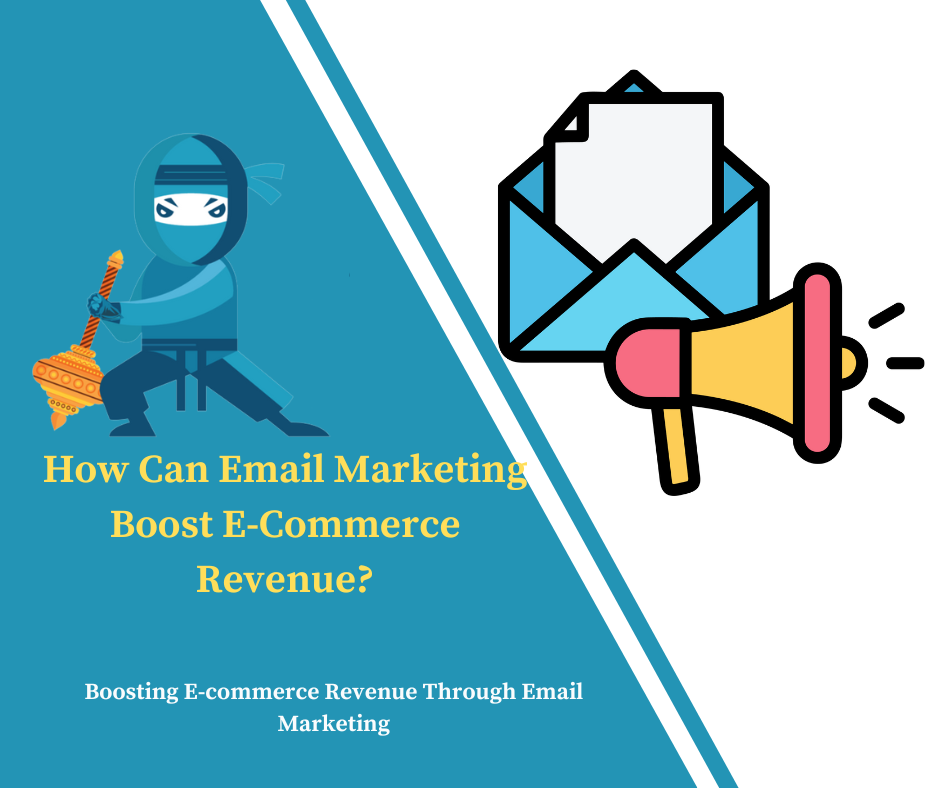How Can Email Marketing Boost E-commerce Revenue?
Email marketing remains one of the most effective tools in an e-commerce business’s arsenal for driving revenue. With its ability to reach customers directly and provide personalized content, email marketing can significantly influence purchase decisions, foster customer loyalty, and increase overall sales.
In this article, we’ll explore how email marketing can boost e-commerce revenue, focusing on strategies and best practices that can maximize its impact.
Why Email Marketing Matters for E-Commerce
1. Direct Communication with Customers
Unlike social media or SEO, email marketing provides a direct line of communication between businesses and their customers. Emails land directly in the customer’s inbox, allowing businesses to send personalized and targeted messages without competing for attention. This is crucial in an era where customers are constantly bombarded with advertisements and notifications.
2. High ROI
According to research, email marketing delivers one of the highest returns on investment (ROI) among all digital marketing strategies, with an average return of $36 for every $1 spent. The key to this success is the ability to send personalized, data-driven messages that resonate with recipients, encouraging them to make a purchase.
3. Automation and Personalization
With tools like email automation and segmentation, businesses can tailor their campaigns to specific customer behaviors and preferences. By sending the right message at the right time, email marketing can significantly increase conversion rates and encourage repeat purchases. For example, abandoned cart emails remind customers about products they left behind, while personalized product recommendations based on past purchases can boost sales.
Key Strategies for Using Email Marketing to Boost Revenue
1. Build a Quality Email List
The foundation of any successful email marketing campaign is a well-curated email list. Quality is more important than quantity. Focus on collecting email addresses from customers who are genuinely interested in your products or services. Some strategies to build a quality list include offering incentives like discounts or exclusive content in exchange for email sign-ups.
Use double opt-in methods to ensure that the subscribers are genuinely interested. This can improve open and engagement rates, leading to higher conversion rates.
Also read: How Can Compressing Images & Files Boost Website Speed?
2. Segment Your Audience
Audience segmentation involves dividing your email list into smaller groups based on various factors like demographics, purchase history, or browsing behavior. This allows you to send targeted and relevant content to each group, increasing the chances of engagement and conversions.
For example:
New customers: Send a welcome email series to introduce them to your brand.
Returning customers: Offer special deals or recommend products based on previous purchases.
Cart abandoners: Use abandoned cart emails to encourage users to complete their purchases.
3. Craft Engaging Content
The content of your emails needs to be engaging, valuable, and tailored to your audience’s preferences. This includes catchy subject lines, clear and concise messaging, compelling visuals, and a strong call-to-action (CTA). The tone and style should reflect your brand and speak directly to your audience.
Here are some content ideas for e-commerce emails:
Product recommendations: Send personalized product suggestions based on previous purchases or browsing behavior.
Exclusive discounts: Create a sense of urgency by offering time-limited discounts.
Seasonal promotions: Align your offers with seasonal trends to increase relevancy.
4. Automate Email Campaigns
Automation is a powerful tool in email marketing, allowing businesses to send timely, personalized emails without manual intervention. Here are some automated emails that can boost e-commerce revenue:
Welcome emails: Automatically send a welcome email series to new subscribers. These emails can include an introduction to your brand, product recommendations, and a special discount code.
Abandoned cart emails: Remind customers who have added items to their cart but haven’t completed the purchase. Offering a discount in these emails can further incentivize conversion.
Re-engagement emails: Target inactive subscribers with a special offer or exclusive content to re-engage them.
Post-purchase emails: Thank customers for their purchases, provide shipping updates, and suggest complementary products to increase the chances of repeat purchases.
5. Track and Analyze Performance
To improve the effectiveness of your email marketing campaigns, it’s essential to track key performance indicators (KPIs) like open rates, click-through rates, and conversion rates. This data provides insights into what’s working and what needs improvement.
Regular A/B testing of subject lines, email content, and CTAs can help you optimize your campaigns and maximize revenue. Use the data to refine your strategy and focus on the tactics that deliver the best results.
Benefits of Email Marketing for E-Commerce
1. Increased Customer Retention
Email marketing helps maintain regular communication with your customers, keeping your brand top of mind. Whether it’s a simple thank-you email after a purchase or a reminder about an abandoned cart, these interactions foster loyalty and encourage repeat business.
2. Personalized Shopping Experience
Personalization is key in today’s e-commerce landscape. By leveraging customer data like browsing history and purchase behavior, businesses can create tailored email campaigns that speak directly to individual preferences, increasing the likelihood of a purchase.
3. Boost in Average Order Value (AOV)
Email marketing can encourage customers to spend more through upselling and cross-selling strategies. For example, post-purchase emails can suggest complementary products, while cart abandonment emails can offer incentives like free shipping or discounts on larger purchases.
4. Nurturing Customer Relationships
Regular email communication allows you to build relationships with your customers over time. By sending them relevant content, product updates, and exclusive offers, you create a sense of connection and trust that can turn one-time buyers into loyal, repeat customers.
FAQs
How often should I send emails to my customers?
It depends on your audience and the nature of your business. A general rule of thumb is to send emails 1-2 times per week. However, it’s essential to strike a balance between staying top of mind and avoiding spamming your customers. Test different frequencies and monitor engagement rates to find the sweet spot.
What type of content works best for e-commerce emails?
Product recommendations, exclusive discounts, abandoned cart reminders, and seasonal promotions tend to perform well. Personalization is key, so tailor your content to your audience’s preferences and behavior.
How can I increase my email open rates?
To boost open rates, focus on writing compelling subject lines and ensure that your emails are sent at optimal times. Personalization and segmentation can also improve open rates by making your emails more relevant to each recipient.
Can I use email marketing to attract new customers?
While email marketing is primarily a tool for nurturing existing leads, you can attract new customers by offering sign-up incentives, like discounts or exclusive content. Additionally, collecting email addresses through social media campaigns or paid ads can expand your list.
What tools can I use to automate my email marketing?
Popular email marketing platforms like Mailchimp, Klaviyo, and ActiveCampaign offer automation features that allow you to send personalized, timed emails based on customer behavior. These tools also provide analytics to help you track campaign performance.
Conclusion
Email marketing is an essential tool for e-commerce businesses seeking to increase revenue. With its ability to deliver personalized, direct communication, it enhances customer engagement, boosts conversion rates, and fosters long-term loyalty. By leveraging key strategies like audience segmentation, automation, and personalized content, businesses can create highly targeted campaigns that resonate with their audience. As one of the most cost-effective marketing channels, email marketing helps drive sales, increase average order value, and nurture lasting customer relationships, ultimately playing a crucial role in e-commerce growth.








